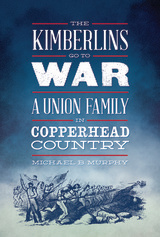441 books about War and 3
start with K
441 books about War and 3
441 books about War
3 start with K start with K
3 start with K start with K

Killer Apps
War, Media, Machine
Jeremy Packer and Joshua Reeves
Duke University Press, 2020
In Killer Apps Jeremy Packer and Joshua Reeves provide a detailed account of the rise of automation in warfare, showing how media systems are central to building weapons systems with artificial intelligence in order to more efficiently select and eliminate military targets. Drawing on the insights of a wide range of political and media theorists, Packer and Reeves develop a new theory for understanding how the intersection of media and military strategy drives today's AI arms race. They address the use of media to search for enemies in their analyses of the history of automated radar systems, the search for extraterrestrial life, and the development of military climate science, which treats the changing earth as an enemy. As the authors demonstrate, contemporary military strategy demands perfect communication in an evolving battlespace that is increasingly inhospitable to human frailties, necessitating humans' replacement by advanced robotics, machine intelligence, and media systems.
[more]

The Kimberlins Go to War
A Union Family in Copperhead Country
Michael B. Murphy
Indiana Historical Society Press, 2016
As July 7, 1861, dawned, war was in the air in Lexington, Indiana. The county seat of Scott County was abuzz with the latest news of the southern rebellion. The _Madison Daily and Evening Courier_ told of skirmishes between Federal troops and “secesh” forces at Harpers Ferry and Falling Waters, Virginia. Closer to home, word had come that William A. Sanderson had organized a new outfit, the Twenty-Third Indiana, and was recruiting throughout the Second Congressional District for men to join the regiment.
Although Scott County had been rife with sympathy and support for the South, answering the call to serve the Union cause from the county were Jacob T. Kimberlin, a twenty-one-year-old farmhand; his older brother, John J.; and his cousins, William H. H. Kimberlin, Benjamin F. Kimberlin, and James Stark. These five young men could not have known at the time that none of them would ever again see their homes. They only knew that the Kimberlins were going to war.
This is the story of the Kimberlin family that sent thirty-three fathers and sons, brothers and cousins, to fight for the Union during the Civil War. Ten family members were killed, wounded, or died of battlefield disease, a 30 percent casualty rate that is unmatched in recorded Scott County history. Of the 134 known deaths of Scott County soldiers, ten were members of the Kimberlin clan. Their feelings about the war come from forty letters to and from the battlefield that have survived to this day. The book examines such questions as: Were they fighting to save the Union or to free the slaves? How did they express grief over the loss of a brother? Did they keep up with their business and the women at home? And what did they think about “secesh” neighbors in southern Indiana who tried to undermine the Union?
[more]

Knowing by Ear
Listening to Voice Recordings with African Prisoners of War in German Camps (1915–1918)
Anette Hoffmann
Duke University Press, 2024
During World War I, thousands of young African men conscripted to fight for France and Britain were captured and held as prisoners of war in Germany, where their stories and songs were recorded and archived by German linguists. In Knowing by Ear, Anette Hoffmann demonstrates that listening to these acoustic recordings as historical sources, rather than linguistic samples, opens up possibilities for new historical perspectives and the formation of alternate archival practices and knowledge production. She foregrounds the archival presence of individual speakers and positions their recorded voices as responses to their experiences of colonialism, war, and the journey from Africa to Europe. By engaging with the recordings alongside written sources, photographs, and artworks depicting the speakers, Hoffmann personalizes speakers from present-day Senegal, Somalia, Togo, and Congo. Knowing by Ear includes transcriptions of numerous recordings of spoken and sung texts, revealing acoustic archives as significant yet under-researched sources for recovering the historical speaking positions of colonized subjects and listen to the acoustic echo of colonial knowledge production.
[more]
READERS
Browse our collection.
PUBLISHERS
See BiblioVault's publisher services.
STUDENT SERVICES
Files for college accessibility offices.
UChicago Accessibility Resources
home | accessibility | search | about | contact us
BiblioVault ® 2001 - 2024
The University of Chicago Press









